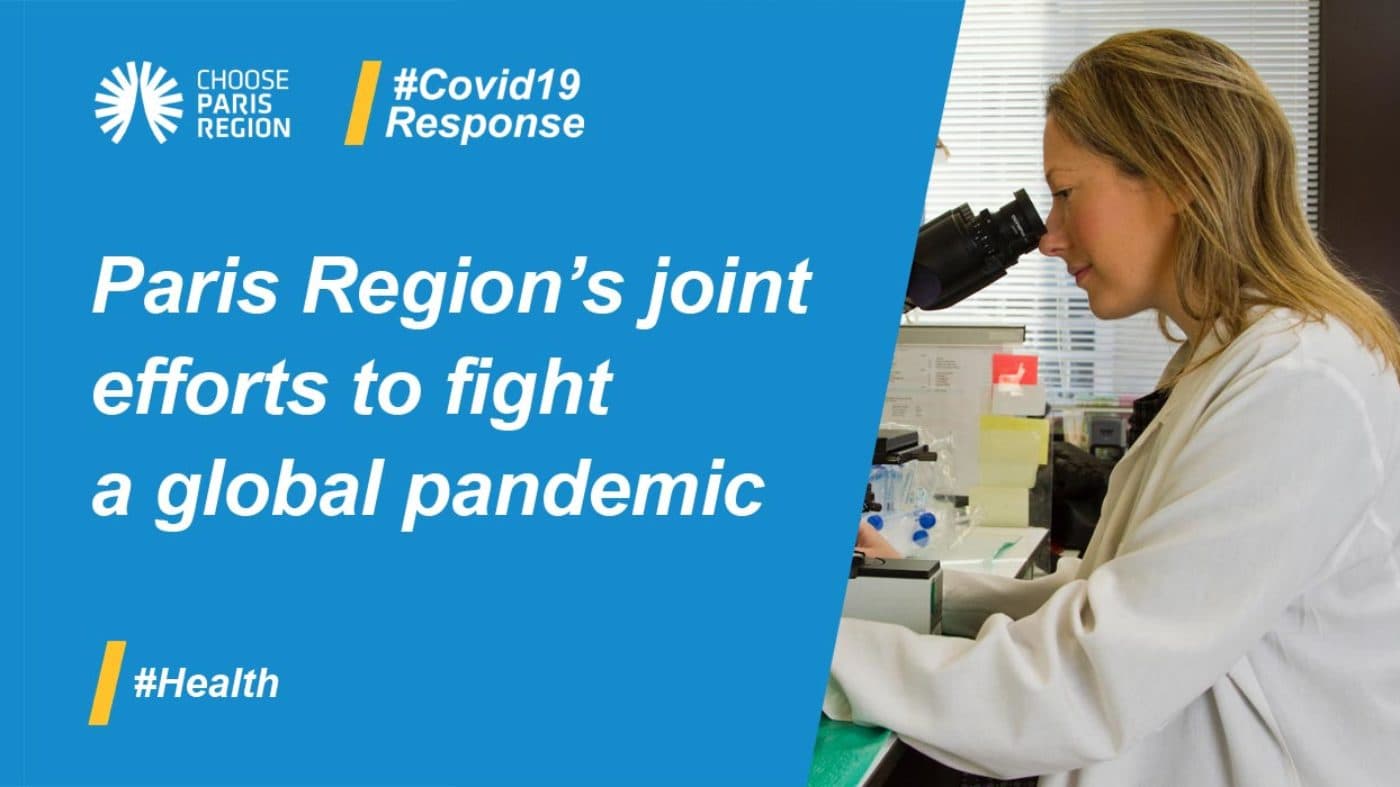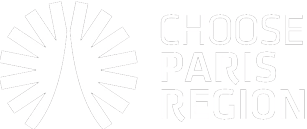
The current sanitary crisis spurred an unprecedented collaboration between the healthcare organizations of the Paris Region and society at large. We have seen many innovative initiatives spring to life and more are on their way. In such uncertain times, it is quite impressive to see a Region spurring so many innovative solutions at such a fast pace.
The Paris Region medical research centers have proven extremely resourceful
On January 24, 2020, the French Ministry of Health confirmed the first three cases of patients contaminated with the novel coronavirus. In a mere three days, the Institut Pasteur, responsible for monitoring respiratory viruses in France, sequenced the whole genome of the newly found coronavirus. This was an absolute first in Europe.
However, the Institut Pasteur has not been the only one to react so quickly in the field of research. Since the beginning of the outbreak, France’s Alliance for Life Sciences and Health (Aviesan) has been mobilized to speed up research on Covid-19 through REACTing (REsearch and ACTion targeting emerging infectious diseases) – a consortium coordinated by Inserm (French National Institute of Health and Medical Research) whose offices are located in Paris. This consortium was created in 2014 to better prepare for future epidemics, following recent epidemics that the world has known such as SARS and avian flu in 2003, H1N1 flu in 2009, Chikungunya in 2013 and Ebola in 2014-2015.
Furthermore, on March 11, the same day that World Health Organization (WHO) recognized the new coronavirus pandemic, REACTing decided to finance 20 research projects on subjects as diverse as modeling the epidemic, treatment research and prevention but also on topics related to human and social sciences such as communication on social networks, the behavior of the population, containment, etc.
Pooling and sharing resources to face the COVID-19 emergency
Paris Region has been able to mobilize its driving forces through numerous actions. Unprecedented cooperation is happening between public and private healthcare organizations, as evidenced by the Director-General of Ramsay Santé, the first French private hospital group to speak of “excellent cooperation” and working “in complete solidarity and unity” with the support from the Regional Health Agency in Paris Region (Source: French newspaper Les Echos, March 31).
On March 20, the Regional Health Agency for Paris Region and the French health start-up MedGo based in Paris launched #Renforts-Covid, a digital interface encouraging students, active or retired professionals to come and reinforce health organizations. A mere six days later, 8,000 volunteers (with competencies in healthcare) had already registered to help caregivers in the Paris Region. At the same time, The Paris Region’s largest hospital network with 39 hospitals commonly referred to as AP-HP, received more than 16,000 proposals in less than 10 days from volunteers (coming from a variety of backgrounds). The call for volunteers initially targeted students from higher education schools and quickly expanded to others, with sought-after skills such as IT/development, data science, logistics, etc. AP-HP worked with Slack, an American company, which offered access to its collaborative communication platform to facilitate the management of volunteer missions during the crisis episode.
Moreover, towards the end of March, the President of the Paris Region Valérie Pécresse launched a call for backup to the 15,000 nursing students currently studying in the Paris Region to provide help to the various health centers in the Region and released the funds necessary to pay them.
Innovation as a catalyst for health applications
Innovation in training
The urgent training of caregivers had to be organized with maximum efficiency for subjects such as how to treat COVID-19 patients in intensive care. This included specific training on COVID-19 specifics, reanimation, and obstetrics in a COVID-19 context. An e-learning platform was developed in record-breaking time by the AP-HP teams, in collaboration with universities and CoorpAcademy, a Franco-Swiss Edtech company based in Paris and Lausanne. Available since March 21, 2020, the platform already has more than 20,000 users, in early April, with consultations abroad (Tunisia, Algeria, Belgium…).
3D printers for medical devices
Other public-private partnerships on complex projects were born: for example, in the span of 10 days, the Cochin AP-HP Hospital was equipped with a fleet of 60 3D printers thanks to the decisive mobilization of about fifty hospital doctors, engineers, developers and entrepreneurs, made possible with the support of Kering group. This project enabled the timely production and distribution of 3D printable medical devices to all hospitals of the AP-HP (protective visors for the face, valves for emergency artificial respirators, intubation equipment, handles…).
Many other initiatives emerged these past few weeks, uniting public and private key actors in the fight against the COVID-19. These initiatives are concrete proof of Paris Region’s capacity to pool and share resources in a very short amount of time and in such uncertain times, it is quite impressive to see a Region spurring so much innovation and generating such solidarity amongst people.
Choose Paris Experts

Yann Masson
Healthcare, Life SciencesExpert

